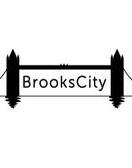As a small business owner, when you think of accounting the first thing that comes to mind is probably just accounting. Afterall accounting is accounting right? Not so fast.
There are actually two methods of recording transactions, one is cash based and the other is accrual based. Accrual is also referred to as traditional accounting.
Regardless if you're just starting up or have an established business it's important to know how they differ so you can understand the impact on your business.
Your accountant will be able to advise you which is best for your specific scenario, business structure and industry.
In this article we'll take you through the basics of cash versus traditional accounting and explore what sets each one apart.
Difference between cash and accrual accounting.
The main difference between cash and accrual accounting is the timing when a transaction gets recorded. If you record transactions when you receive money in the bank then it's on a cash basis. If it's when you send an invoice or receive a bill then it's accrual based accounting.
What is cash basis accounting?
Businesses that use cash based accounting record income and expenses only when money is actually received or paid in a tax year. Any money that is owed to you from a sent invoice or that you owe from a bill doesn't count until they've been settled. All forms of payment count regardless that you are paid by cash, card, cheque, electronic payment or any other method.
Benefits of cash accounting
- Simple to maintain
- Easier to calculate tax and VAT
- Easier on cash-flow because you're not taxed on income you haven't received yet
- Shows you exactly how much money you currently have
- Can use a flat rate for certain expenses
Downsides of cash accounting.
- Not accurate because it doesn't show what you owe or are owed.
- You can't offset your losses against other taxable income
- Limited information to make decisions because you only have a day-to-day view
- Not suitable for more complex businesses such as those holding a lot of stock
- Difficult to get financing because banks require accounts using traditional accounting
- Can't claim interest or bank charges of more than £500 as an expense
Who can use cash basis?
Cash accounting is not permitted for limited companies or limited partnerships. The cash basis method is only allowed for certain small unincorporated businesses such as sole traders and partnerships.
There are additional restrictions on who can't use cash basis which can be found here.
Cash accounting threshold
The threshold to use cash accounting is £150,000 or less a year. If your business grows through the year you can stay in the scheme up to a total turnover of £300,000 but you'll have to use traditional accounting for your next tax return.
What is accrual basis accounting?
Businesses that use accrual accounting are required to record income as soon as they invoice and to record business expenses as soon as they are billed regardless if it was paid or not. If you are running a limited company or limited partnership this is the only way to record transactions.
As a limited company it's also important you keep accurate, complete and readable records of all your income and expenditures because this is a financial obligation. Failure to do so can result in a fine of £3,000 by HMRC or disqualification as a company director.
Benefits of accrual accounting
- Provides an accurate picture of your business performance and finances
- Easier to get financing because this is the type of accounts banks want to see
- Suitable for high-growth businesses and larger companies
- Allows you to make better financial decisions
Downsides of accrual accounting
- Requires cash reserves to pay tax and VAT on unpaid invoices
- Doesn't account for cash flow, so you can look profitable with a low bank balance
- Requires strict monitoring of cash flow
- Requires more accounting expertise
If you're still unsure which method is best for your situation and would like more information get in touch with one of our accountants in London. A dedicated member of our team at BrooksCity can help you make the right choice or even make the switch from cash basis to accrual basis.
We offer a complete accounting solution to small businesses in London which includes bookkeeping, tax planning, self-assessment, corporation tax and more. You can request a quote or contact us here.

